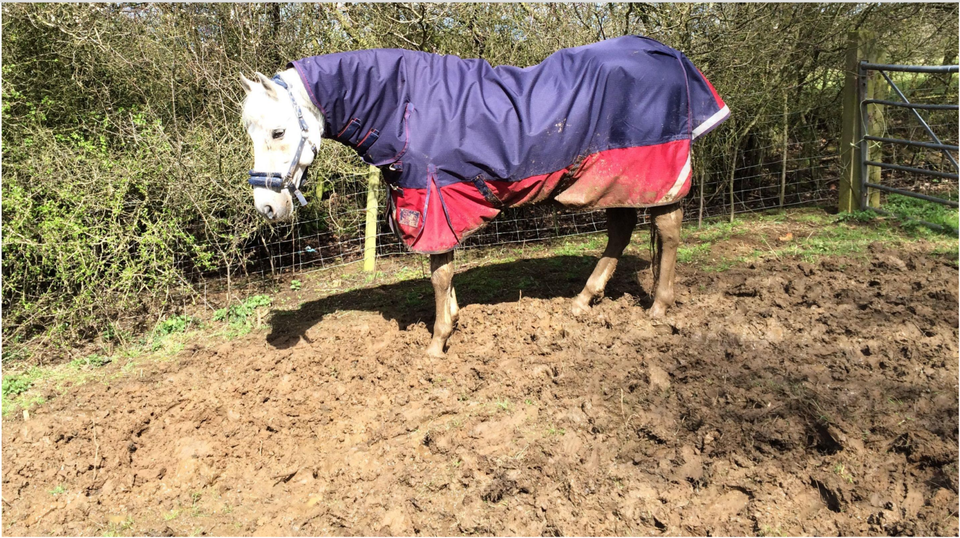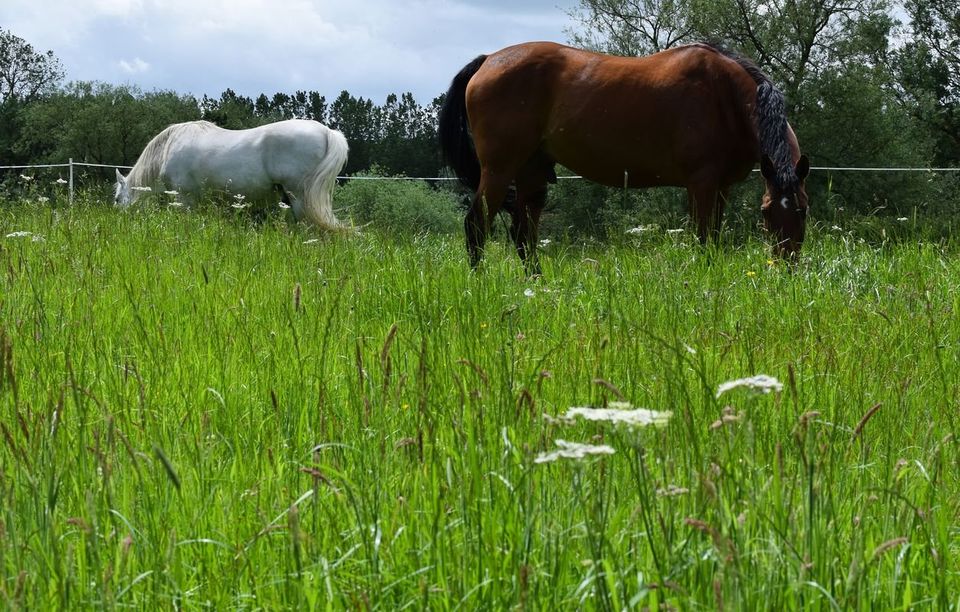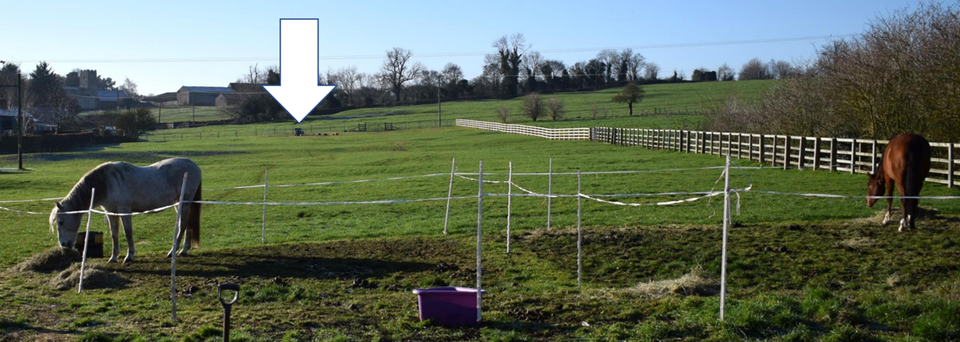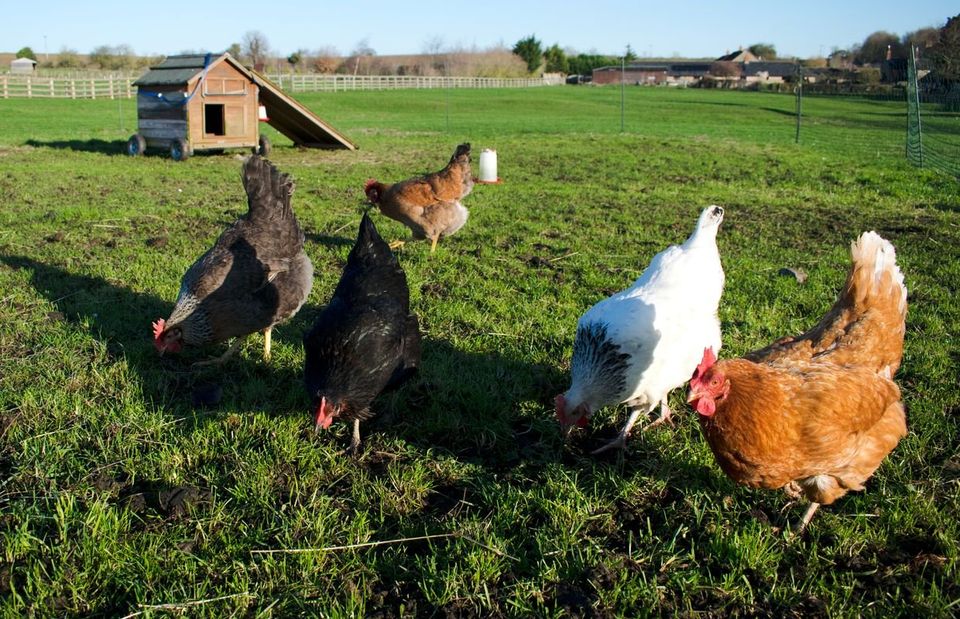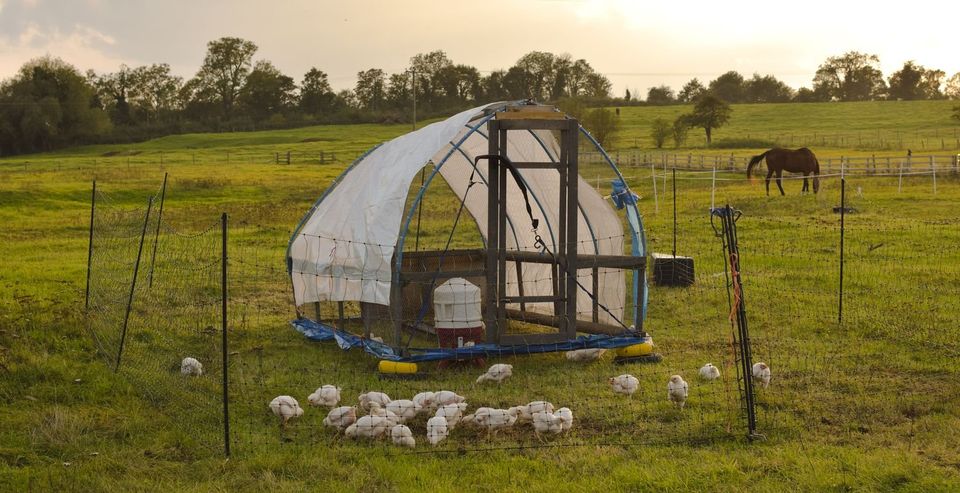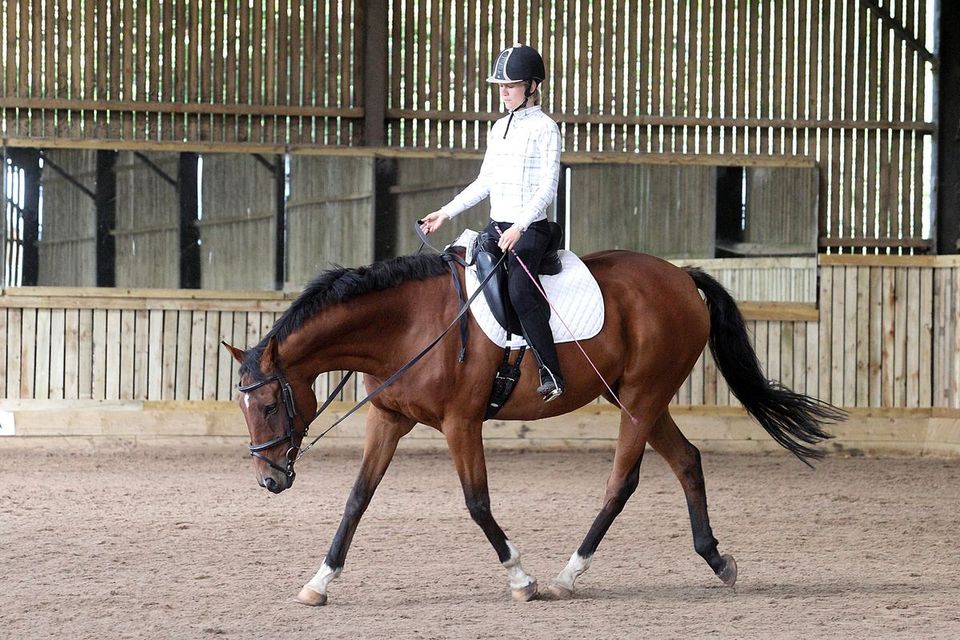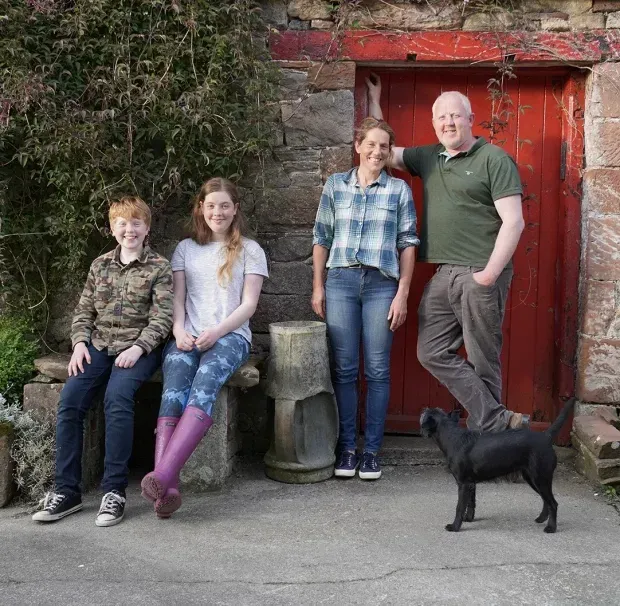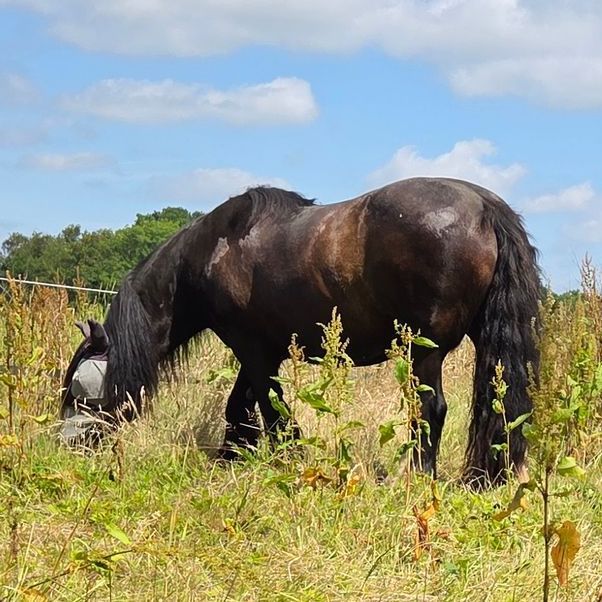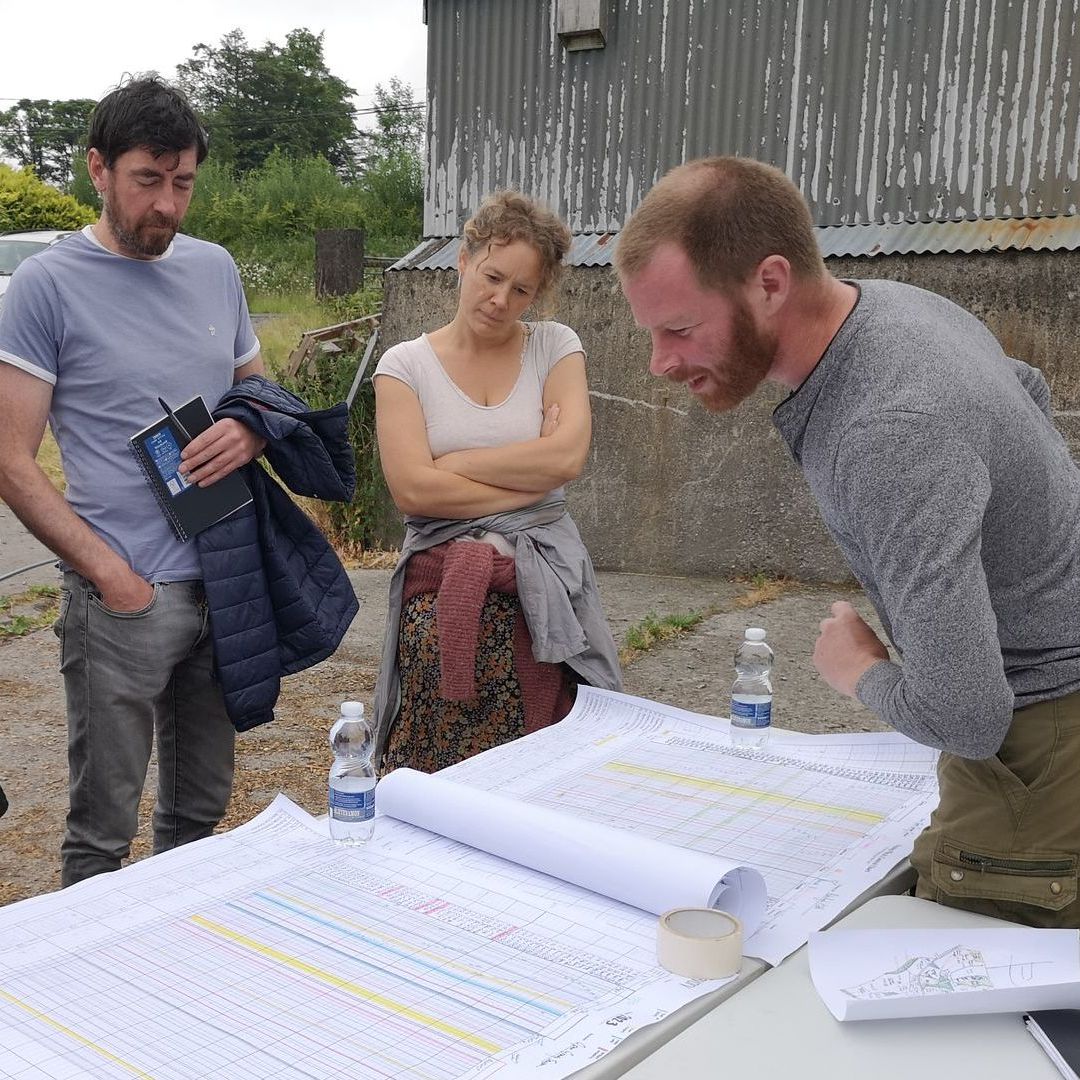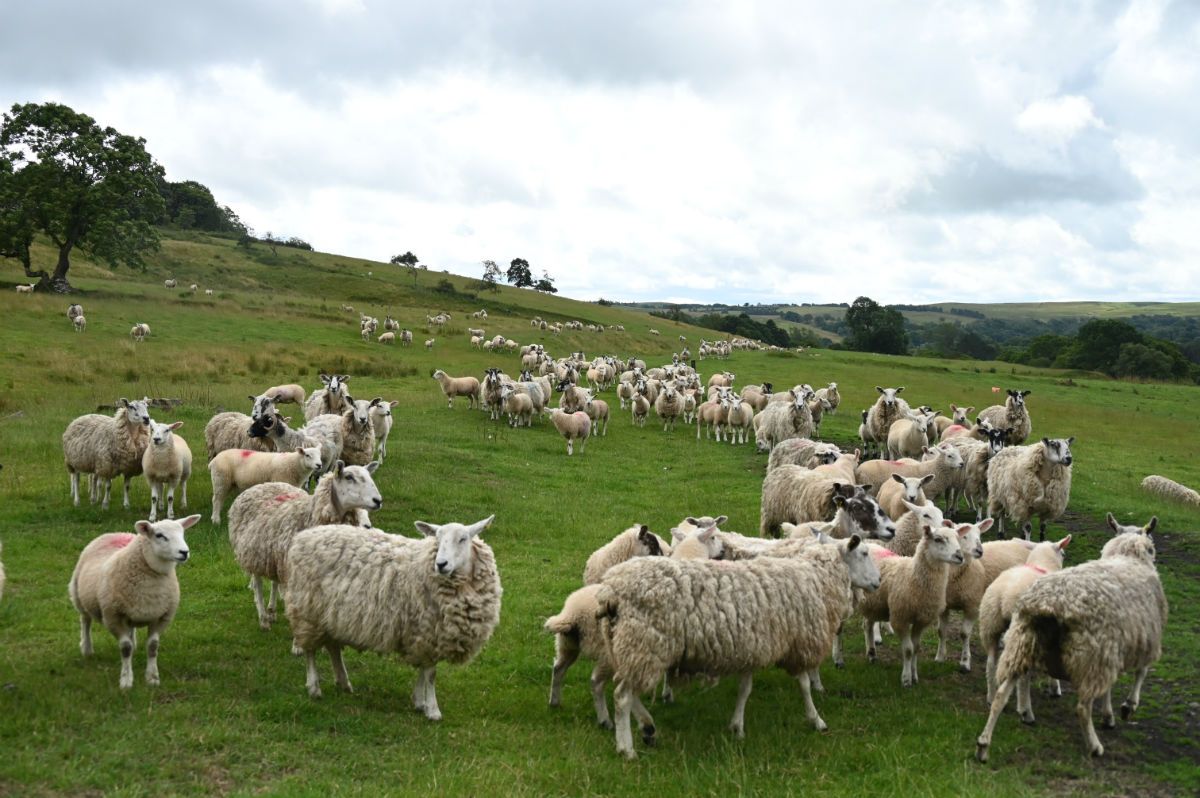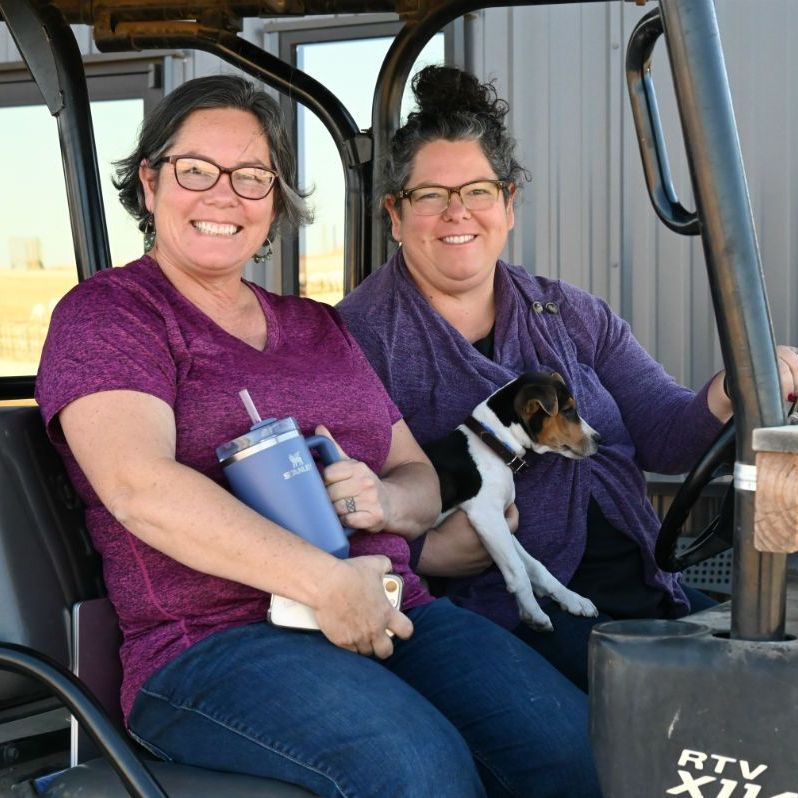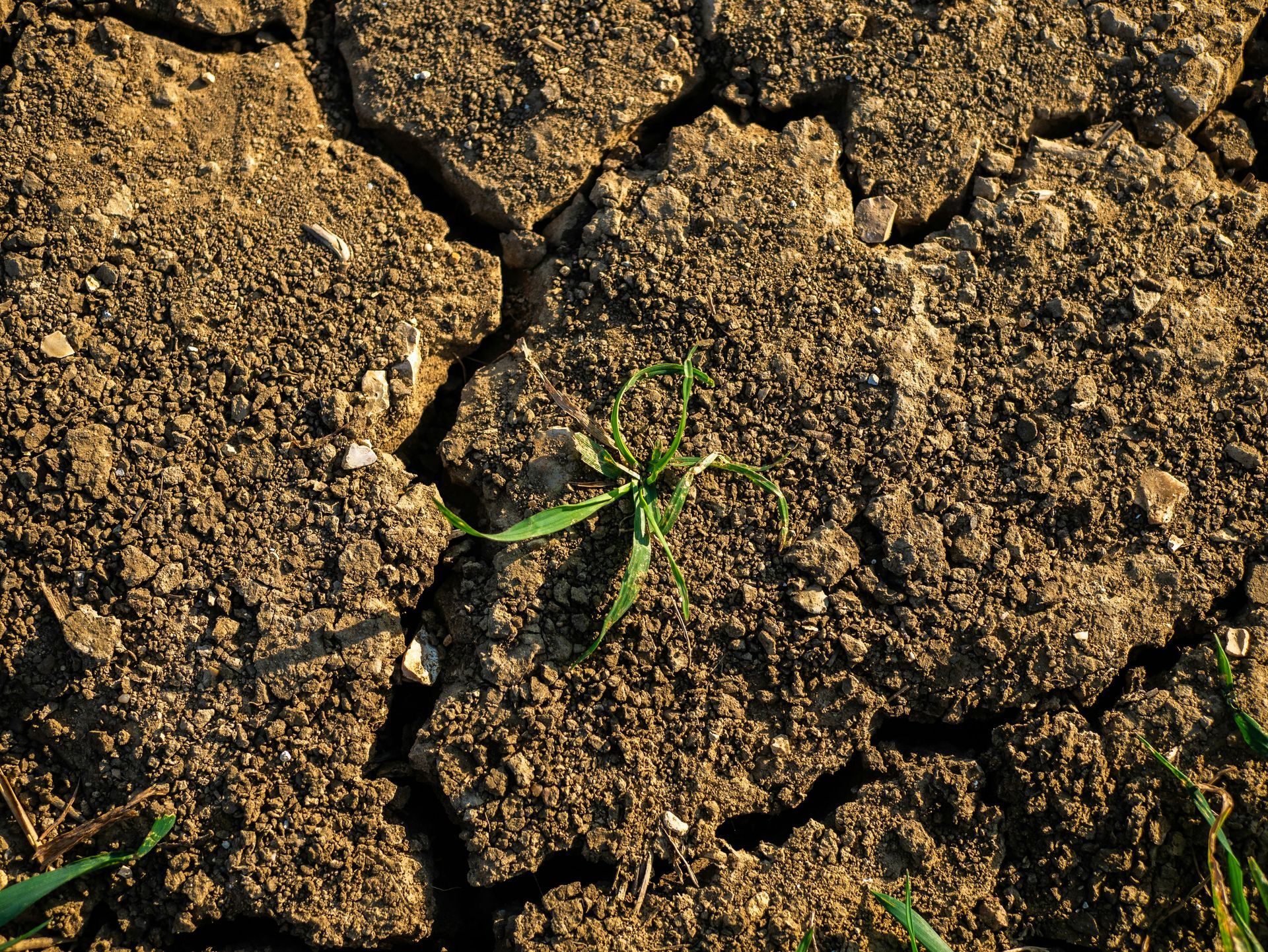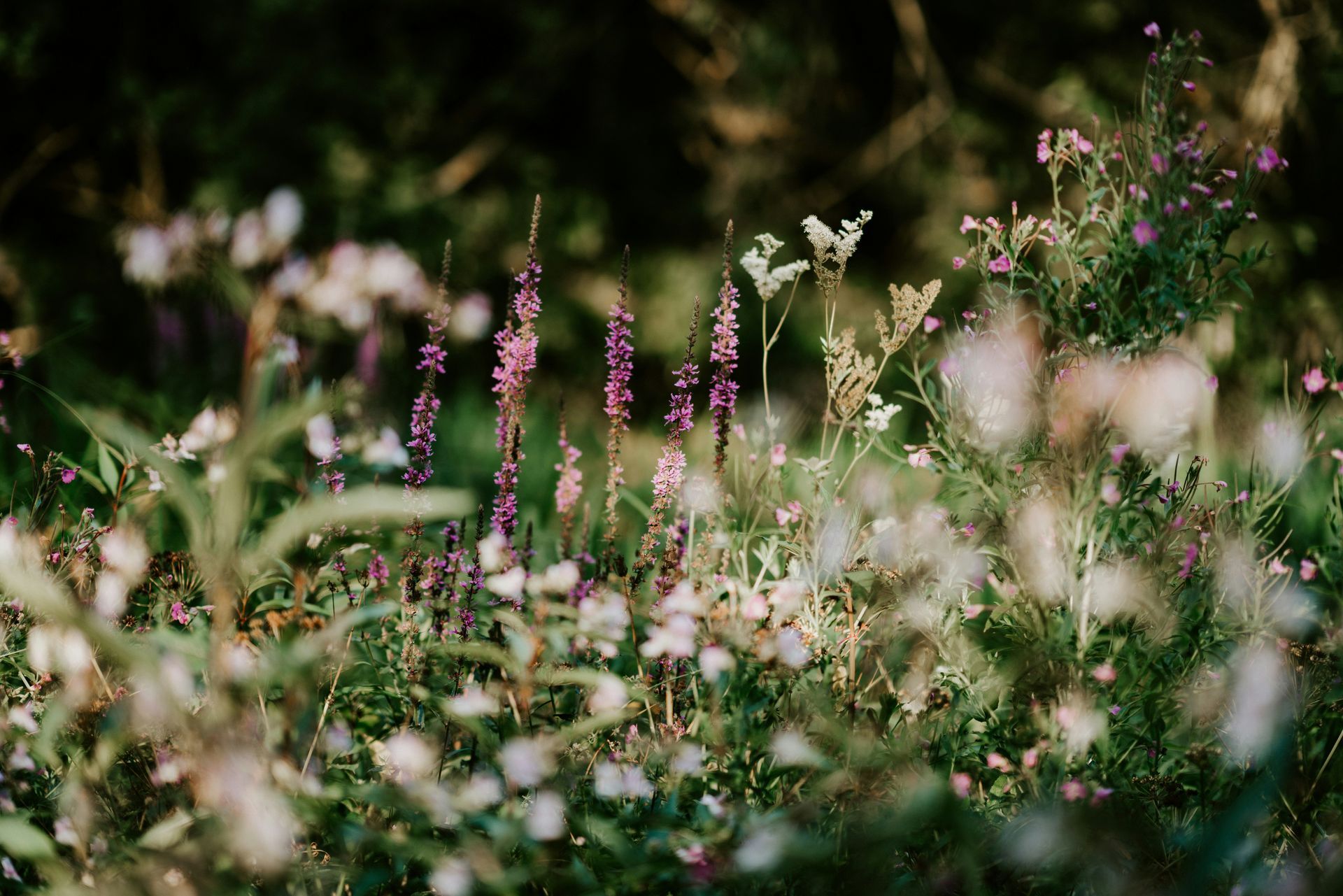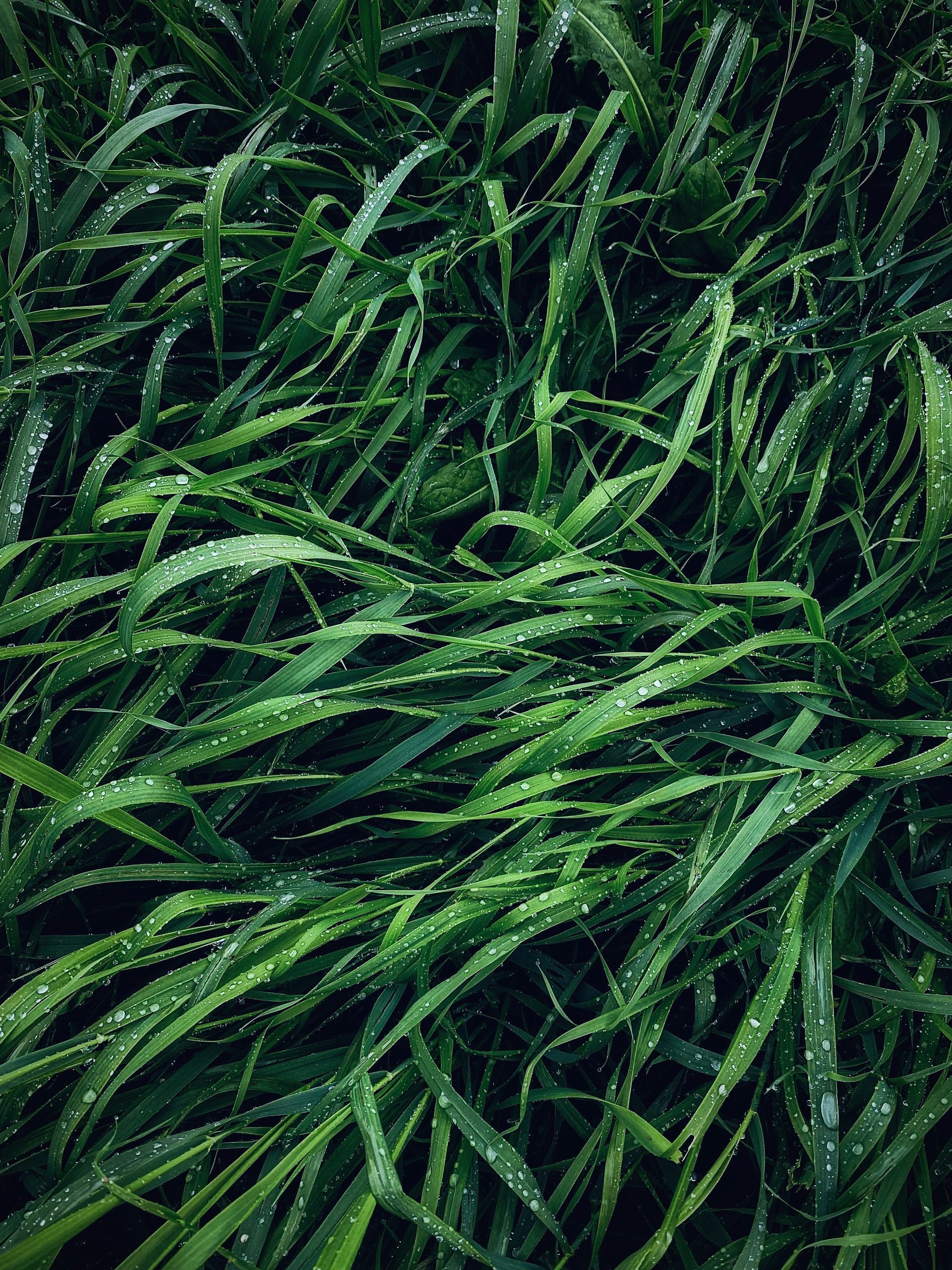Managing Horses Holistically
Sheila Cooke • 19 October 2020
Radka Gromnicova, at Nature Way Farm in Buckinghamshire, England, saves time and money, and has healthier horses by managing holistically.
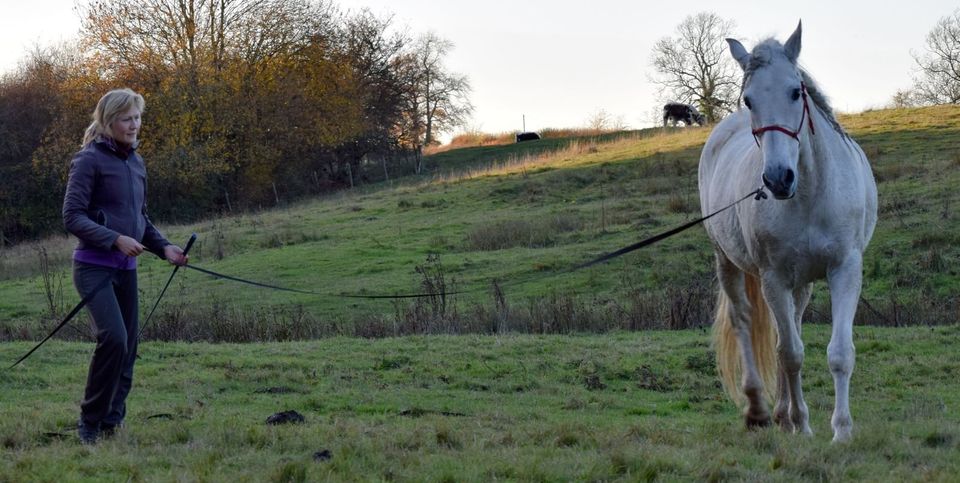
Traditional horse pasture management leads to muddy gateways. The photo below was taken two years prior to switching to a practice that regenerates land.
The 'Before' picture below is a bare patch where horses used to roll and create a compacted area. A year and a half later, it has completely covered over with vegetation. (Use the slidebar to see the change.)
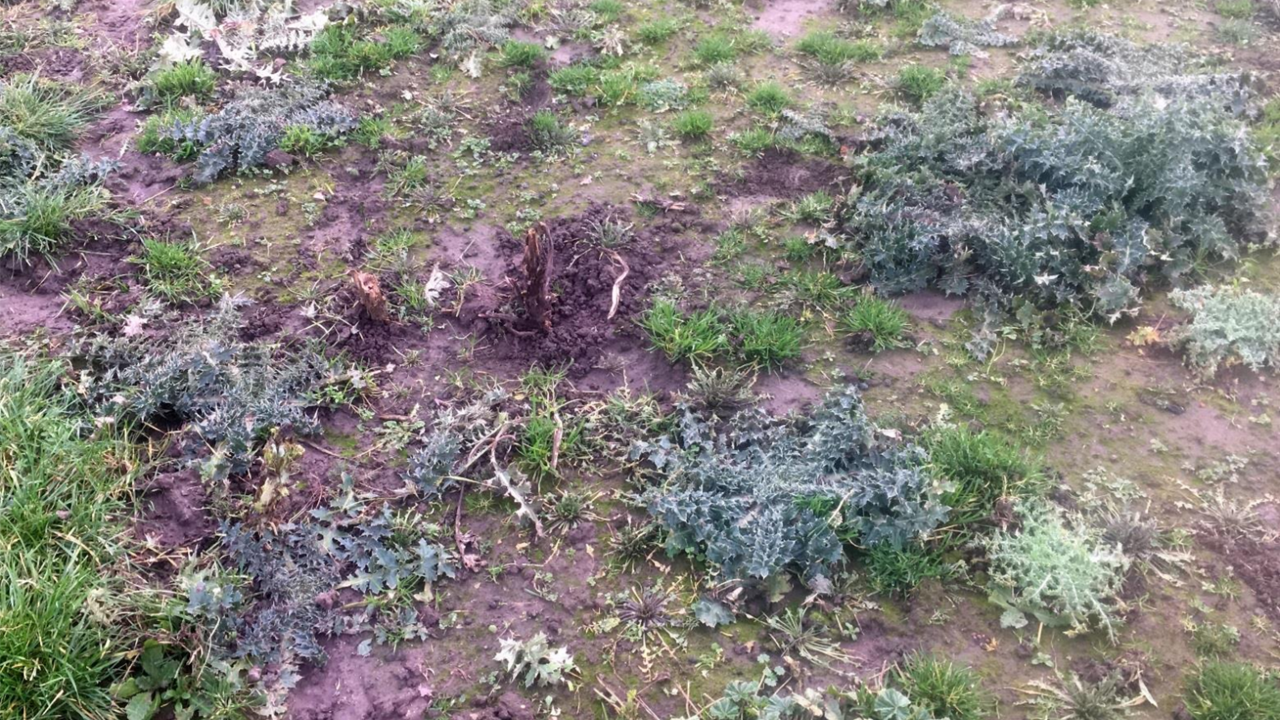
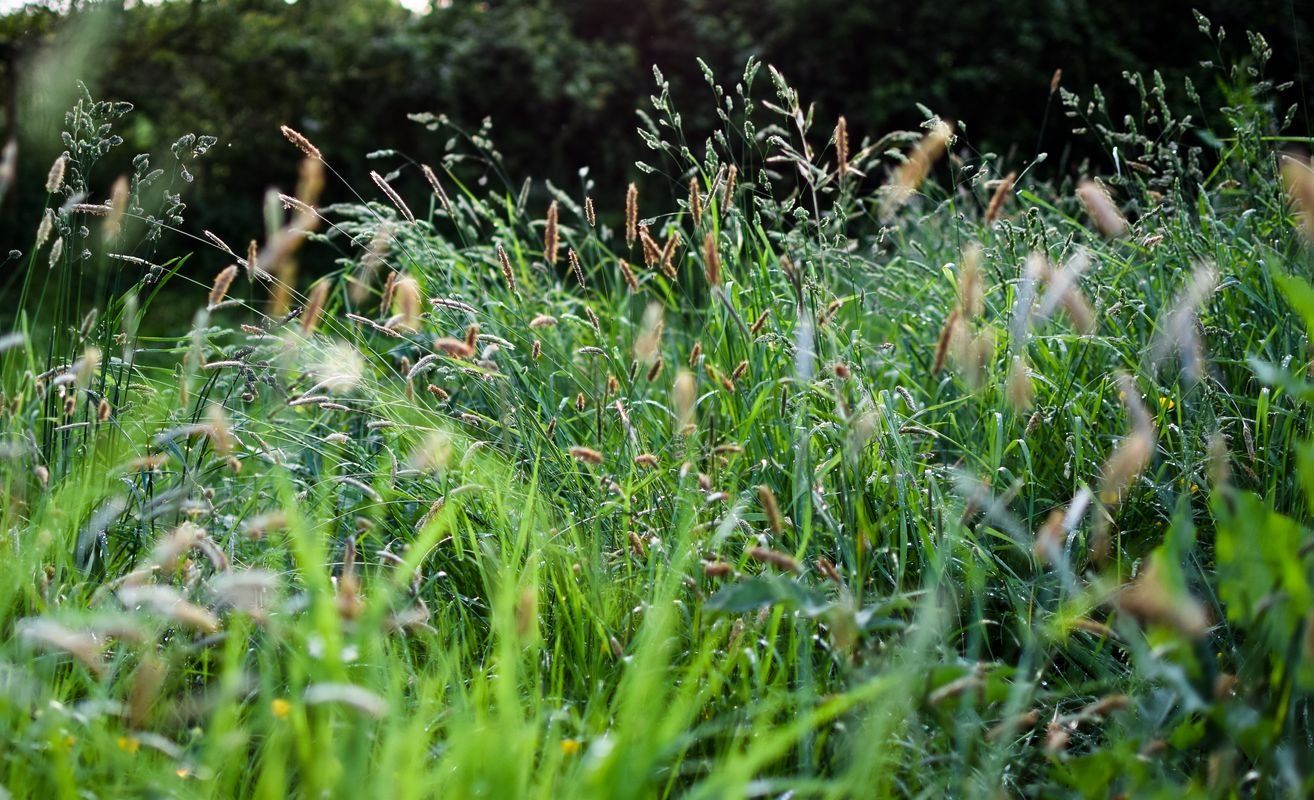
Horses evolved to eat tall grass, says Radka. Horses in the tall, dense grass (below) can pick and choose what they like and need.
In her video, Natural Horse Pasture Management, Radka shows how to manage pasture to grow nutrient-dense forage for excellent horse health.
The 'Before & After' images below are of the poorest field where the grass never grew tall. Better distribution of dung and urine combined with long plant recovery times allowed bare soil to cover over with vegetation. Grasshoppers, large dung beetles and ant hills reappeared.
Radka used to feed hay August until September, and from October onward. By the look of things she may have grass until December this year. She bought some hay in April, in case of a July-August drought, but she didn't use it. (Use the slidebar to see the contrast.)
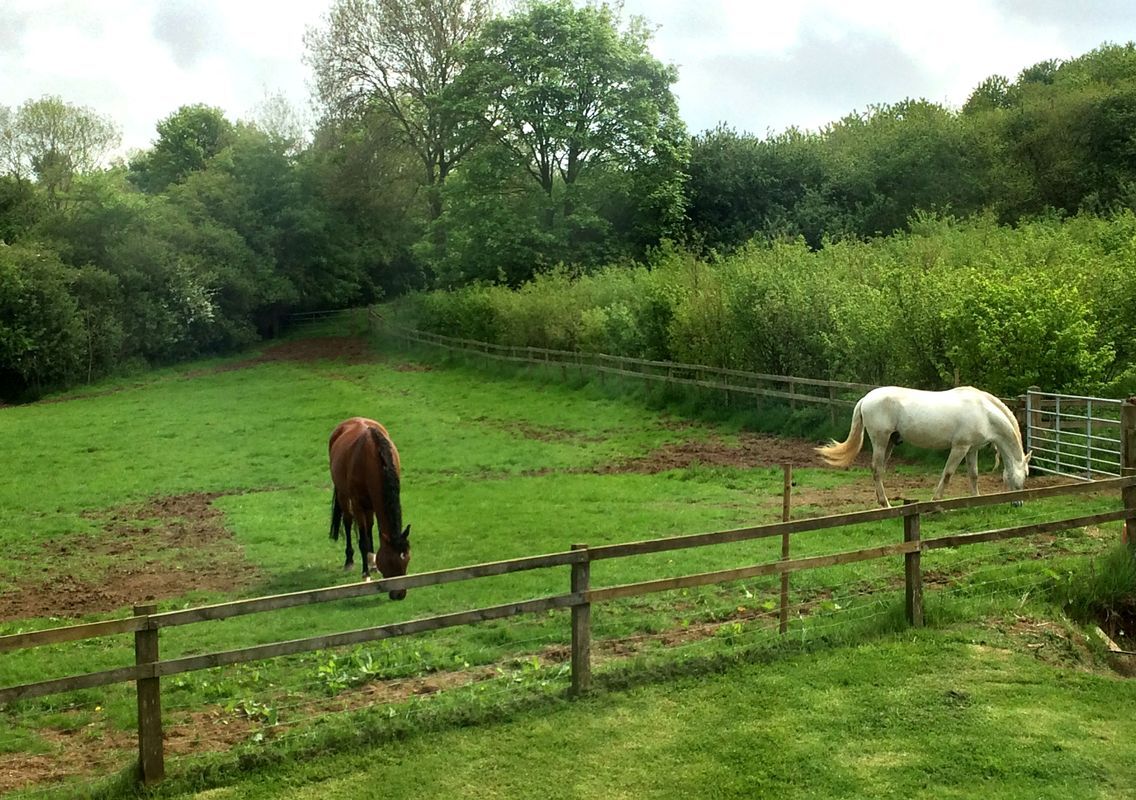
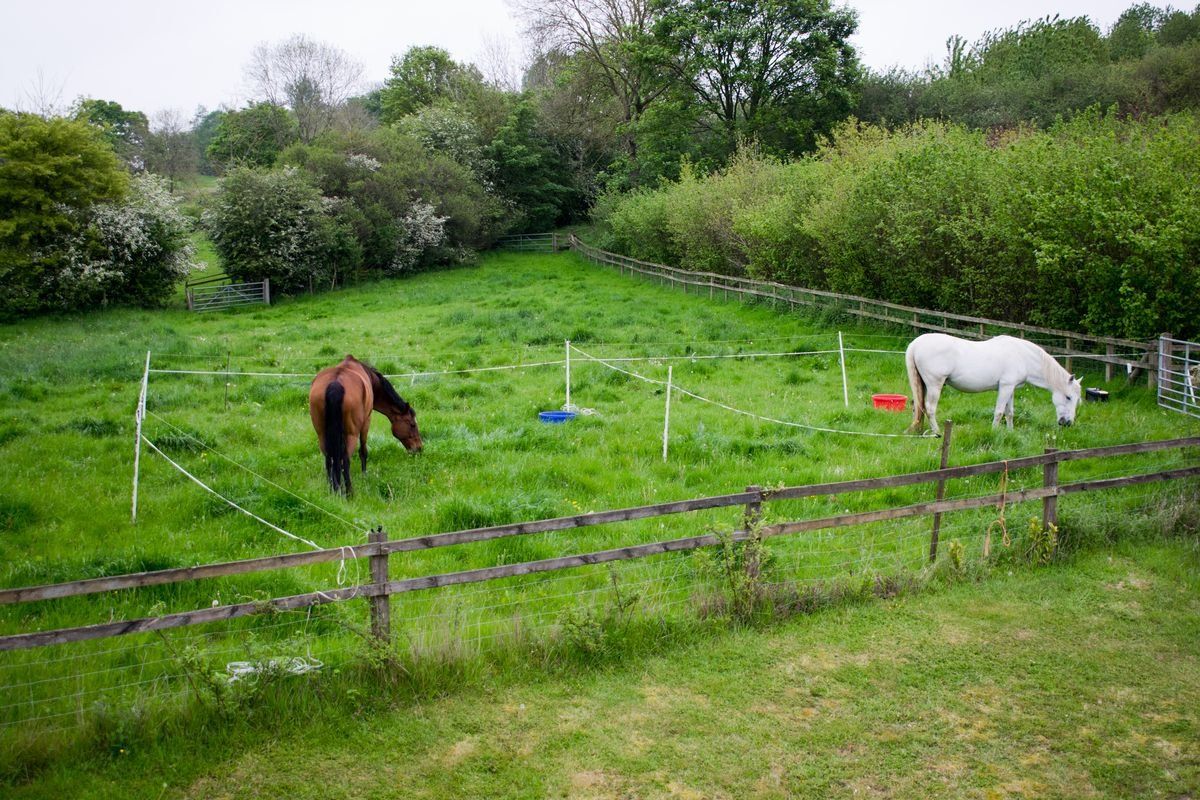
The field below was overgrazed by horses and poo-picked for 20 years, and no grass was present when Radka secured the property. The image was taken at the end of January 2020, following six months of total rest. Notice there is no mud, apart from the three-day grazing enclosures the horses are in.
The white arrow in the photo above is pointing at the chickens which are scratching for insects and spreading the horse manure. Despite the wet, Radka was able to keep the horses out on pasture the whole Winter, apart from ten days of the worst weather.
Radka demonstrates in the video below how easy it is to build a temporary grazing unit for your horses using electric fencing.
Laying hens are a great way of utilising the pasture to improve land fertility. Radka keeps her hens safe from predators with a good electronet and energizer. Their fenced area is moved weekly to an area previously grazed by horses.
Hens scratch for insects in the manure, spreading it whilst leaving their own droppings. Chicken manure is potent! Radka ran the pen on the worst grass, and it has some of the best grass now -- lush, thick and dark green. The rest of the pasture looks pale in comparison.
Nature's Way Farm have been approved for on-farm slaughter (in an outdoor mobile unit), and have added broilers. The meat is of top quality, full of chicken taste and well-structured. Their customers love it, so they are expanding the broiler enterprise next year.
Thanks to Holistic Management, Radka has more time to enjoy her horses.
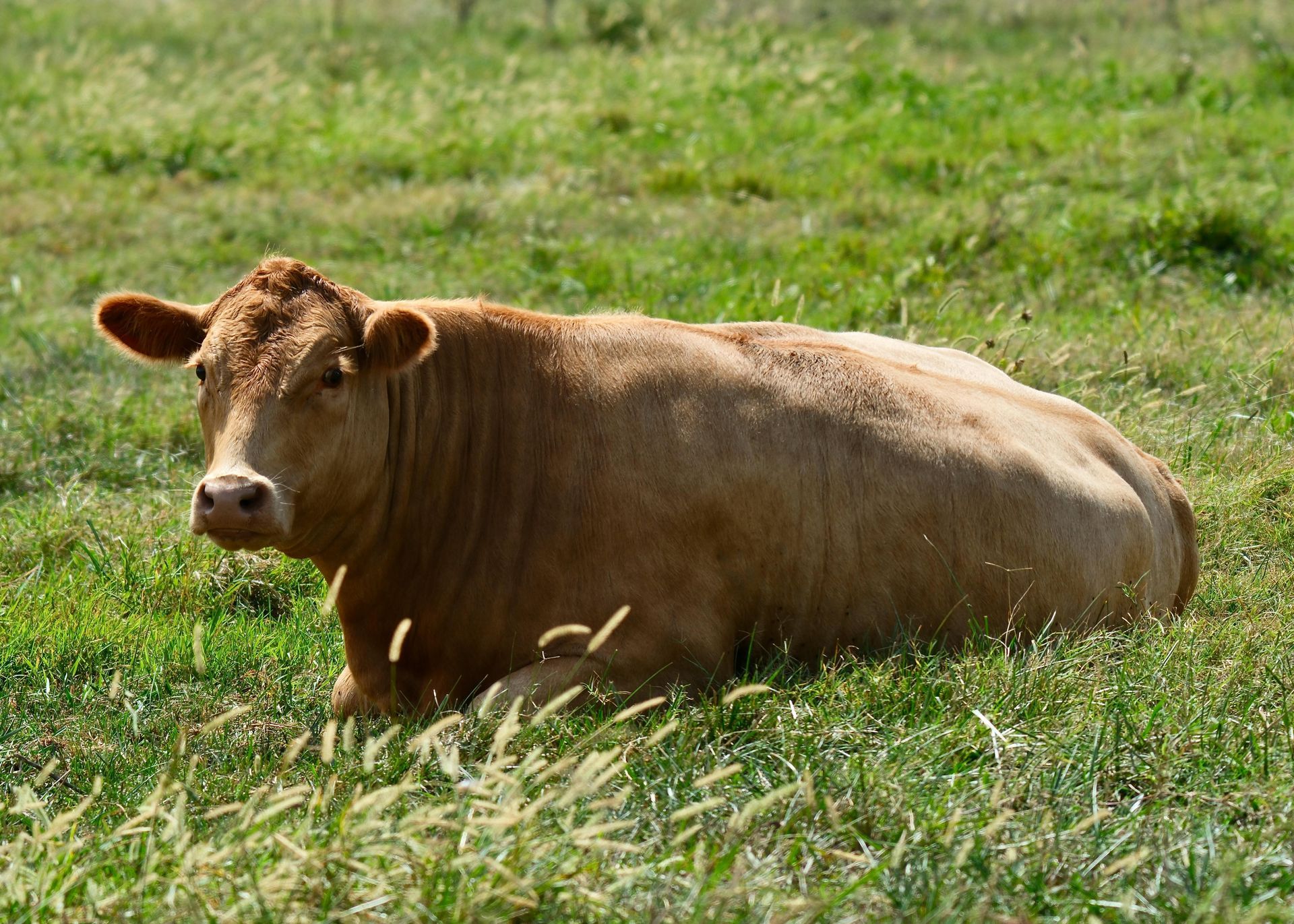
Agriculture in Ireland stands at a crossroads. One path keeps chasing ever-higher yields while costs for labour, feed, fertiliser, energy and infrastructure rise. Many urban people blame farmers, especially livestock farmers, for biodiversity loss and climate change. On this path, small family farms break down and are swallowed by large factory operations, replacing the patchwork of working farms. A return to the plantations of yore? Include the continued reduction in CAP payments and the possible loss of nitrogen derogation, and this yield-focussed path becomes increasingly unstable. On the other path, WE CHANGE how we see the land and our role on it. This path opens up to abundant biodiversity, resilient family farms and stronger ties between farmers and their communities. This is all within reach if we are willing to be humble, accept what we don’t already know, and explore ideas that have been developing on the margins for decades. Holistic Management offers principles that, when understood and applied, can transform farms into secure, productive businesses – the kind of farm any parent would want to hand to their son or daughter. On this path, the farmer thinks profit per acre, not yield. At 3LM we share this knowledge with farmers. Every farm is different, so it is for each farmer to adapt the principles to their own land and goals. Recently, I was fortunate to be invited to take part in the, Meat in the Middle , panel discussion at the inaugural Irish Climate Carnival. What: Climate Carnival Where: The Future of Food Stage Ballintubbert Gardens and House Stradbally Co. Laois Ireland When: 30th of September, 10:30 AM Panel Discussion: Meat in the Middle Who: Mick Kelly (host) John Gibbons (Environmental campaigner) Arthur Potts Dawson (Award winning Chef) Pippa Hackett (Senator and former Minister of State at the Department of Agriculture) Sam Fuller (3LM) The panel will explore the growing split between those who favour plant‑based diets and those who champion regenerative farming with animals. We’ll ask hard questions: are plant‑based diets the only ethical and environmental option? Can animal agriculture be sustainable or even beneficial for ecosystems? Is there a third way beyond polarised debate that leads to a truly sustainable food future? I will advocate for integrating livestock for several reasons. Humans are a keystone species on this island, and how we manage animals matters for building soil, encouraging biodiversity and maintaining a living, working landscape. Fatty red meat is one of the most nutrient- and energy-dense foods available. A farmer who grows and finishes cattle on their own land using their own forage strengthens local food security and rural life. A farmer who understands and uses Holistic Management is also one of the best allies the environmental movement could hope for.
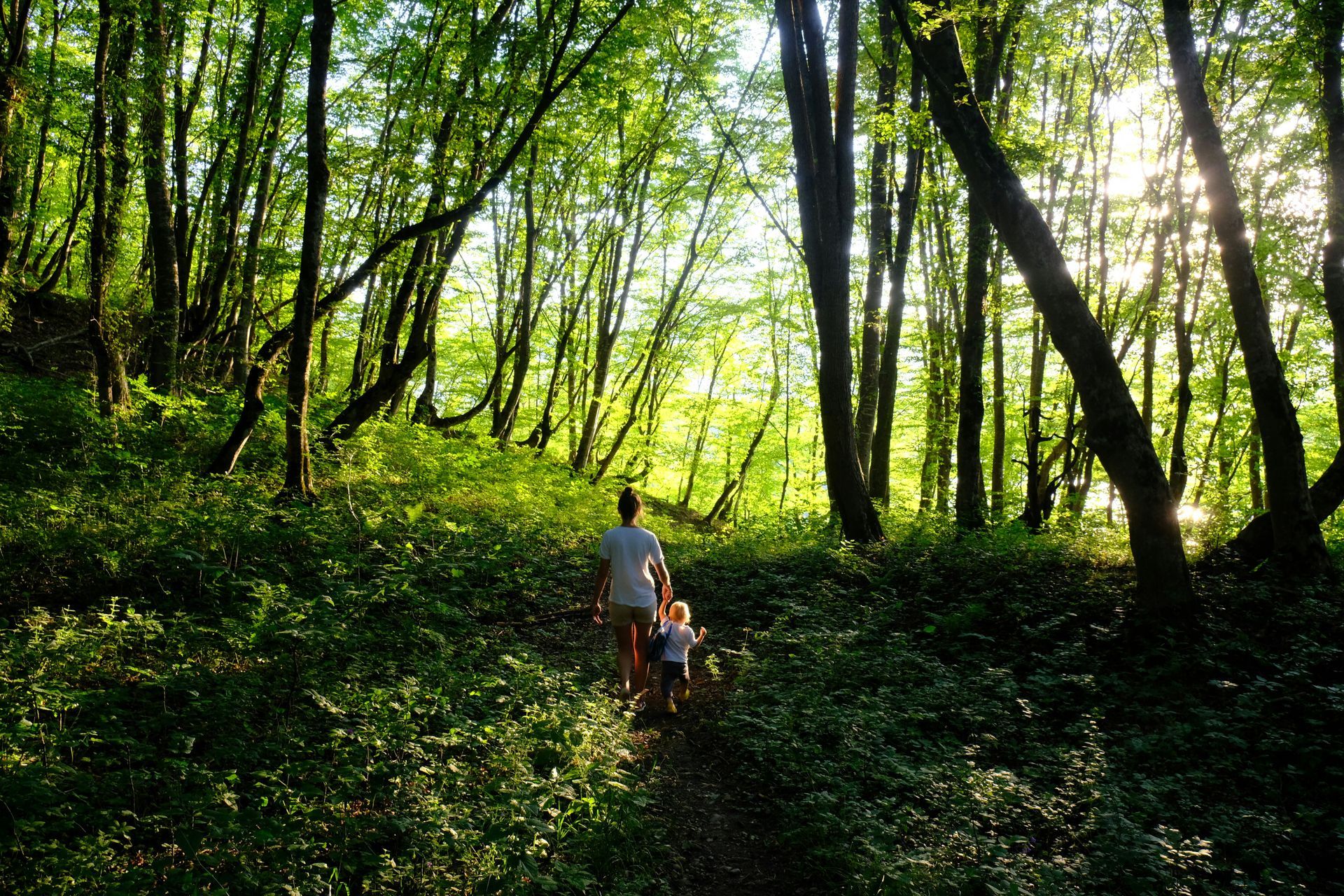
What Are Indicators? The terms "leading" and "lagging indicators" originate from systems theory and are widely used in economics. In this context, leading indicators give clues about where the economy is going, while lagging indicators show us what has already happened. A classic leading indicator is the number of new job advertisements. If companies are posting lots of job openings, it usually means they expect business to grow soon — a sign the economy may be about to improve. A well-known lagging indicator is the unemployment rate. When the economy slows down, businesses take time to react, and layoffs often happen after the downturn has already begun. So while job ads can warn of change, unemployment confirms it has already occurred. Indicators in Ecology In ecology, particularly within Holistic Management, the same principles apply. Leading and lagging indicators help land managers respond to environmental changes more effectively. Ecological Outcome Verification (EOV) Ecological Outcome Verification (EOV) offers a structured framework for monitoring ecological health using both leading and lagging indicators. Classic leading indicators in EOV include: Dung distribution – shows how effectively animals are using the landscape, which relates to grazing impact. Litter cover – refers to plant material covering the soil surface, helping retain moisture and build organic matter. Soil capping – early signs of water infiltration issues and surface degradation. Classic lagging indicators in EOV include: Soil carbon content – a long-term measure of soil health Biodiversity (plant species richness) – reflects broader ecological balance, but responds slowly to changes in management. Water infiltration rates – reveal soil structure and function after long-term management effects. Leading indicators offer subtle, early signals that help land stewards adjust management in real time. Lagging indicators provide essential long-term feedback but often appear only after major changes have occurred. The Human Condition as a Lagging Indicator Human beings have been remarkably successful in inhabiting every climatic region on Earth, not through biological adaptation alone, but by modifying environments with tools, clothing, shelter, agriculture, and technology. This resilience has allowed us to thrive well beyond the natural carrying capacity of local ecosystems. By importing resources, controlling temperature, and artificially generating food and water, we have effectively decoupled our survival from the immediate health of our environments. However, this very success has dulled our sensitivity to ecological feedback. Because we buffer ourselves from natural limits, we often fail to notice when those limits are being breached. Our ability to override early warnings with technology — irrigation, fertilisers, antibiotics, global supply chains — means we no longer feel the signals of stress in ecosystems. In the past, poor soil meant failed crops and hunger, prompting quick behavioural change. Now, consequences are delayed, but not avoided. This resilience is deceptive. It creates the illusion of stability while ecological degradation accumulates in the background. By the time problems become visible — mass species extinction, collapsing insect populations, polluted waterways, declining soil fertility — critical thresholds may have already been crossed. Our responses come too late, often reactive rather than adaptive. Technology extends our comfort, but dulls our ecological sensitivity. Instead of being part of the feedback loop, we exist outside it — until the damage is undeniable. That is why human behaviour now functions as a lagging indicator. We wait for catastrophe before we act. A Flawed Operating System This lag is rooted in our worldview. Modernity, grounded in dualism and industrial logic, sees humans as masters of nature, not participants within a living whole. It encourages control, prediction, and efficiency over perception, humility, and adaptability. This mindset dulls our ecological senses. It overrides our capacity for intuitive, embodied responsiveness. It privileges measurable outputs over relational awareness. As a result, we are systemically insensitive to leading indicators. We miss the bare soil, the collapsed microbial life, the vanishing pollinators — until their absence disrupts our daily lives. In Holistic Management, trained observers — called monitors — are taught to read the land not only through long-term trends but through its moment-to-moment language. What would it mean for us, collectively, to read the Earth in this way? The Potential of Conscious Adaptation While we currently lag, we don’t have to. The beauty of holistic systems — and of life itself — is that they can be trained to respond more intelligently, more attentively, and more quickly. We can become leading indicators. We can tune into early signs of imbalance. We can feel into the edges of complexity before they fracture. We can act, not react. This shift begins with a new internal operating system, one that Holistic Management helps develop. When we define a Holistic Context for our lives, families, organisations, or communities, we begin making decisions rooted in long-term integrity rather than short-term gain. The health of soil, water, people, and purpose are no longer competing interests but interconnected essentials. This isn’t about idealism — it’s about function. It’s about survival through wholeness. Learning to Sense Again Our capacity to live regeneratively depends on our capacity to sense. Not just to measure or model, but to develop a more reliable holistic impression of nature.To be in a new relationship. To notice, to the best of our emergent abilities the nature of the wind, the soil, the plants, the insects and creatures, the changing seasons. In this way, our technological ingenuity isn’t the problem — our disconnection is. Perhaps the next evolution of human intelligence isn’t in artificial intelligence or global policy, but in restoring our capacity for attuned, holistic sensing — the kind of awareness a good grazer has, or a river shifting course to find flow. A Final Reflection The ecological crises we face today aren’t just about pollution or carbon. They are symptoms of a deeper crisis of responsiveness. We are not behaving as if we are part of the living system. We’re lagging, watching from the outside, narrating collapse like a documentary. But we can wake up. We can step back into the loop. Just as a landscape can recover when the right indicators are observed and the right context is held, so too can we — as individuals and as a species — become wise stewards of our place within the whole. If human behaviour is currently a lagging indicator, then the great challenge — and opportunity — of our time is to become a leading one. The very tool that enabled our extraordinary resilience — technology — can now be repurposed to restore our sensitivity and responsiveness. Rather than standing apart from nature, we can become an active part of it once again, adapting in real time and accelerating ecological recovery faster than passive rewilding alone ever could.

